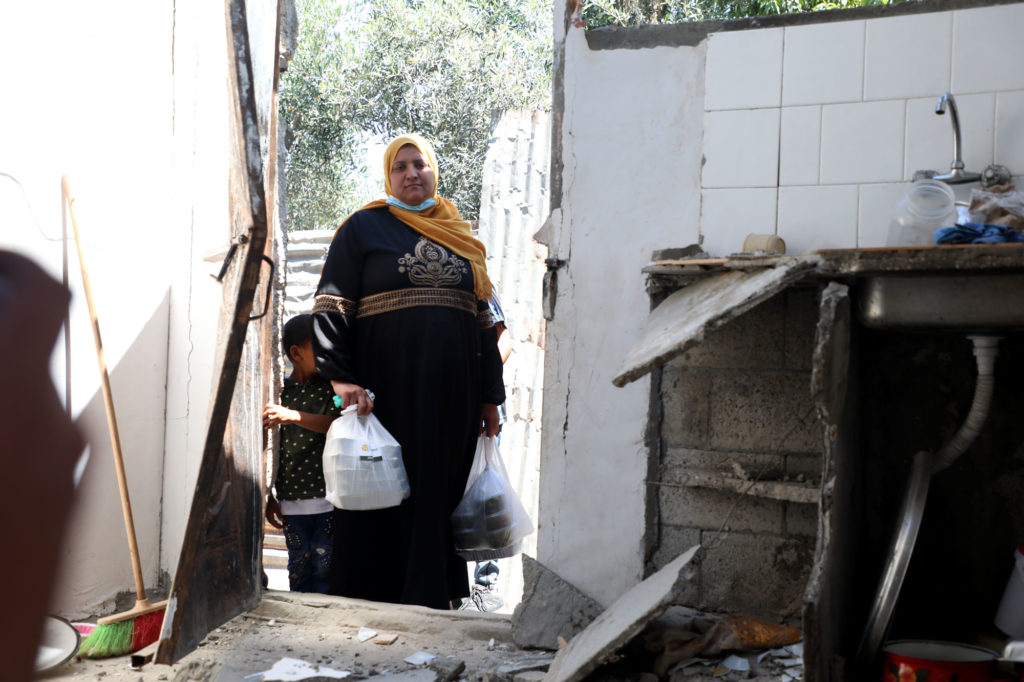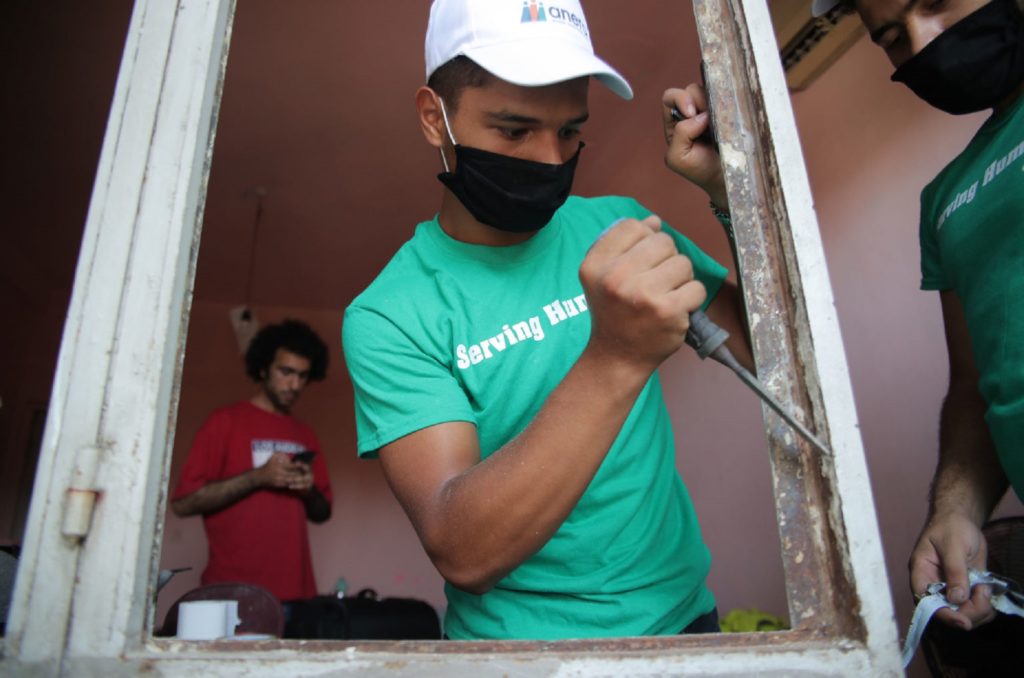Responding to the Earthquake
Posted in: About Anera, News, Visionaries
In the wake of a major disaster, many of us feel immediately compelled to help in any way we can. And we absolutely should support the earthquake response efforts in Syria, Turkey and neighboring countries. However, we also know from past experiences that the outpouring of humanitarian response to major calamities can sometimes outstrip both the immediate emergency response needs and the infrastructure necessary for absorbing the support. In almost all cases, some of that goodwill is better directed at helping people on the long road to recovery and to better prepare for the next disaster.
So, as we all give to relief efforts in Turkey, Syria and Lebanon, we should also think about how we can help these now more-vulnerable communities in the long term. The earthquake stands as a warning that, across the region, people and infrastructure are inadequately prepared for these kinds of events. A disaster like this one should galvanize us to take action now to prepare for the next crisis, whether it be an earthquake, climate emergency or other calamity.
Anera does not have programs in Turkey or Syria, but we work with Syrian, Palestinian and Lebanese communities in Lebanon that are affected. We are assessing the immediate and medium- and longer-term needs in Lebanon. In the immediate aftermath of the quake, we are supporting healthcare facilities in the Tripoli area with shipments of supplies and medicine. We also will continue contributing to the regular maintenance of contingency stocks for first responders. Our staff is physically fine, but they – like the rest of the country – experienced a sharp reminder of the trauma of the Beirut Port explosion of August 2020.
Anera has 50+ years of experience responding to crisis situations in Palestine and Lebanon. The organization started by delivering humanitarian relief in the wake of the 1967 war that left so many Palestinians displaced. Each time a crisis hits, Anera sees an outpouring of generosity and empathy. And that support is, of course, hugely welcome and humanity affirming.
Experience has taught us, however, that it’s important we think together about the best use of that support to respond in whatever way makes sense, is helpful, and does no harm. We also need to recognize what the existing conditions were before the disaster struck in order to plot out a long-term recovery plan.
Donate to the Earthquake Victims


The bombings of Gaza in May 2021, for instance, hit an area that was already struggling with massive unemployment, water access problems, and food insecurity. The bombings did terrible damage to infrastructure, killed hundreds and injured many more. In the immediate aftermath, thousands of affected families were able to rely on Anera to provide food, water, medicines, hygiene supplies and cleaning materials. But, it is Anera’s subsequent response that has driven lasting change. We installed water and sanitation networks, supported women entrepreneurs, supplied families with rooftop gardens, and added solar power and water desalination systems to healthcare facilities and schools. These are the interventions that strengthen communities.


Another example is our response to the explosion at the Port of Beirut in August 2020, which brought chaos to a country that was already suffering economic decline and experiencing mass protests against government corruption. After the blast, Anera staff and volunteers fanned out across the city to provide food and water, clean streets filled with glass, and identify areas of acute need. Anera supported hospitals with medicines and supplies as well as financial grants to rebuild and re-equip. When the damage assessments came in, in coordination with other responding organizations, Anera did rehabilitation work on 1,200 homes and businesses in areas of Beirut that were underserved and already economically vulnerable. In subsequent years, in response to more chronic problems, we have provided scholarships to the next generation of nurses and trained young people in marketable skills. These interventions build up communities and their residents.
Finally, we have learned through our decades of experience the importance of staying local in designing and delivering our programs. As the world rushes in to respond to the earthquake’s damage, it’s imperative that the measures we all take happen in close coordination with local actors. If we rely on and bolster local systems and make wise use of local assets, communities will be more resilient to crises in the future. International solidarity works best when it is driven by those most impacted.
Investments in helping communities be prepared need to be made before calamity strikes — not while it’s already happening. You can help build on the foundation of Anera’s emergency response and strengthen the pillars of our core programs by becoming an Anera Visionary. Our monthly donors help Anera’s staff source and distribute vitally needed medical, food and other supplies to those affected by crises. Most importantly, they remain committed after the dust settles, supporting long-term efforts to rebuild livelihoods through economic empowerment programs, school rehabilitations, greenhouse construction and so much more.
OUR BLOG
Related
In this log, Anera provides updates on unfolding war in Palestine and our response. In some cases, additional activities may be added retroactively to the daily entries as we receive additional program reporting. Questions? See our FAQ page July 10,…
